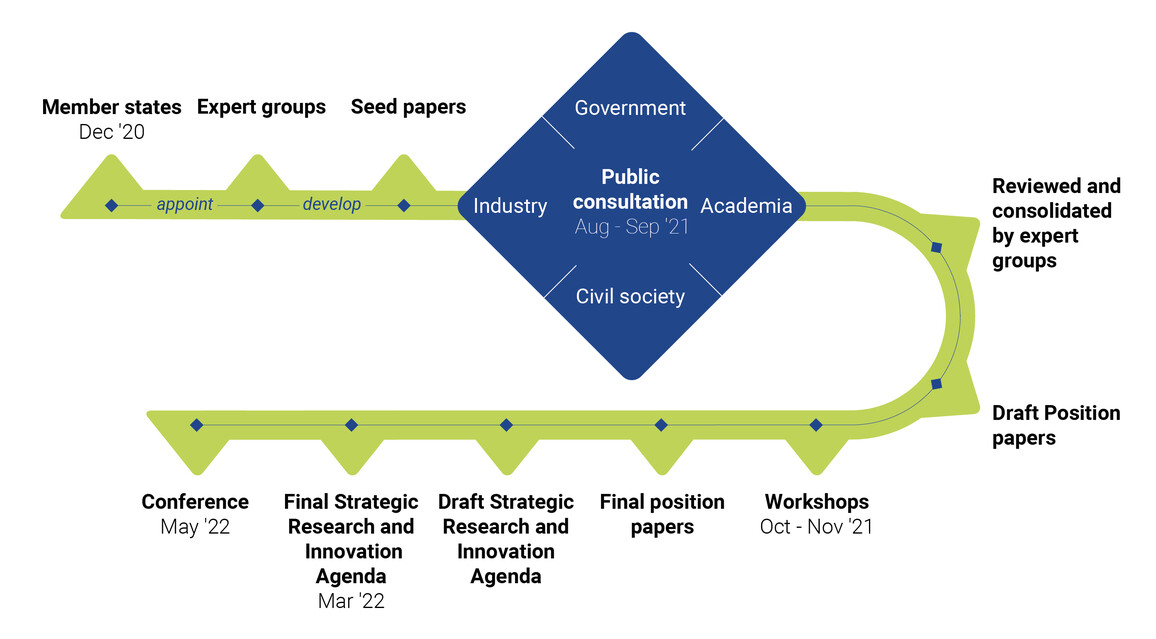Green Hydrogen for a sustainable future – pilot action within the European Research Area (ERA) : Date: , Theme: research
Green Hydrogen is essential to achieving our climate goals. As part of a first R&I pilot initiative, countries cooperate within the European Research Area to make our energy systems more climate-friendly with Green Hydrogen.
The world is facing complex challenges, from the coronavirus crisis and its consequences to tackling the climate crisis. But the past year has shown that groundbreaking research can provide effective solutions to our problems. Green hydrogen can help the energy transition succeed, maintain the competitiveness of key European industries and reduce dependence on fossil fuel imports.
What is Green Hydrogen? It is a carbon-neutral energy carrier entirely produced from renewable energy sources which can be used in the industrial, heating or mobility sector. Green Hydrogen is especially relevant for heavy-duty or ship traffic. Synthetic fuels based on Green Hydrogen can make these transport sectors, which are difficult to electrify, more climate friendly. Through so-called “power-to-X” processes, which transform energy into other energy carriers, Green Hydrogen can be used to produce important raw materials for the chemical industry, e.g. in the BMBF-funded Rheticus project.
The Agenda process on Green Hydrogen
To make green hydrogen technologies fully operational, only a combination of national, EU, bilateral and multilateral activities can lead to success.. In 2020, under the German EU Council Presidency, the European research ministers agreed to launch a joint Research and Innovation initiative on Green Hydrogen.
This initiative is part of the EU member states’ efforts to co-create and jointly implement the new European Research Area (ERA). By shaping the ERA from the bottom-up, including different actors and perspectives, all member states, research institutions, scientists, businesses and citizens benefit alike. Increased cooperation effectively leads to a more equal research and innovation environment across the European Union.
As part of the agenda process, three independent expert groups with representatives from various European countries provided scientific advice for the preparation of the workshops and the evaluation of results. Throughout the year 2021, the experts’ main contribution was to write 'seed papers' on three main topics of the agenda process (“Transport/Infrastructure”, “Production” and “Market Stimulation”), on which the stakeholders and the public could comment in a Europe-wide online consultation.
Once this agenda is complete, the real work begins: Concrete research projects and cooperations shall answer the research questions collected in the agenda. Three pan-European, transdisciplinary workshops on key challenges of a European hydrogen economy took place in autumn 2021, each organised under the leadership of one or more member states. The three workshops focused thematically on 'Production' (organisation: Italy and Bulgaria), Transport/Infrastructure' (organisation: Germany) and 'Market Stimulation' (organisation: Austria). In addition to technical issues, cross-cutting issues including regulatory, economic, ecological and social aspects were addressed in all the workshops.
The SRIA was finalised together with the task force and in close coordination with the European Commission in 2022. It will be officially presented in March 2022 and its implementation further discussed during a hybrid conference in May 2022. Due to the pandemic situation, the process could not be completed in December 2021 as originally planned.
Integrating different interests, needs and perspectives
We will only succeed in achieving our climate goals if we combine our efforts and work on different levels. The agenda process on Green Hydrogen is complementary to other EU initiatives, in close cooperation with the EU Commission, and follows an inclusive bottom-up-approach: Participating EU member states, selected international partner countries will, together with leading experts and stakeholders, discuss the different interests, needs and positions across sectors. Stakeholders from civil society, business and research were invited to become involved and to represent their interests, needs and perspectives in the discussion. This will lead to concrete steps on how to tackle the priority research questions.

